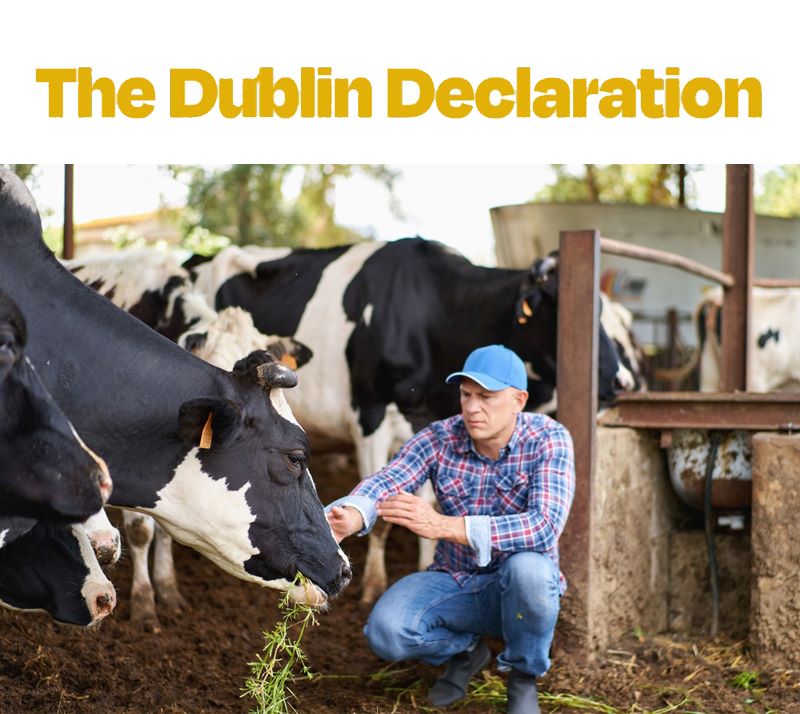Approximately 1,100 scientists from across the world have already signed the Dublin Declaration to endorse the benefits of livestock systems.

San Jose, 28 June 2023 (IICA) – Manuel Otero, Director General of the Inter-American Institute for Cooperation on Agriculture (IICA) announced the wholehearted endorsement by the specialized hemispheric agency for agriculture and rural development of what is known as the Dublin Declaration. The Declaration, which was drafted by scientists, speaks to the role of livestock production, while emphasizing its vital social, economic and nutritional benefits.
The Declaration seeks to raise awareness about the immense importance of livestock systems to the world, warning that these cannot be allowed to be the “victims of simplification, reductionism or zealotry”.
Another important aspect of the Declaration is its appeal to the scientific community to continue providing reliable evidence of the nutrition and health benefits, environmental sustainability, sociocultural and economic values of the livestock system, therefore providing a balanced view of the future of animal agriculture.
Approximately 1,100 scientists from across the world have already signed the Dublin Declaration, which was drafted in 2022 by two European scientists—Frédéric Leroy from Belgium and Peer Ederer from Switzerland—in a bid to address the criticisms levelled at the livestock sector worldwide.
On signing the Declaration, Manuel Otero recalled that, “In Central America, for example, more than 85% of livestock enterprises are operated by small farmers and the animals are much more than production animals. They provide a means of savings and are even used as collateral for small loans”.
He also pointed out that, “Livestock production in the Americas has made significant headway in becoming more sustainable, adopting strategies to reduce the activity’s impact on water, soil and emissions, including through technological development and best practices”. Moreover, it represents half of the agricultural GDP of Latin America and the Caribbean, generating more than 23 billion dollars of foreign exchange from beef production and close to 3 billion from dairy products. We must highlight these aspects in international forums and this Declaration is a significant step in this direction”.
He also indicated that, “The livestock sector of the Americas must be present in all international environmental negotiations to demonstrate its progress towards greater sustainability, which has positioned it as part of the solution to today’s climate crisis”.
The Declaration recognizes the unprecedented challenges faced by current food production systems, which on the one hand must increase the availability of livestock-derived foods (meat, dairy, eggs) to satisfy nutritional requirements, even as some methods and intense animal production systems are creating challenges with regards to biodiversity, climate change and nutrient flows, as well as for animal health and welfare.
All of this has made the need to “advance evidence-based solutions” a matter of urgency, given that sustainability and supply problems are growing exponentially.
Yet, the Declaration points out that “livestock-derived foods provide a variety of essential nutrients and other health-promoting compounds, many of which are lacking in diets globally, even among those populations with higher incomes”.
Moreover, “farmed and herded animals are irreplaceable for maintaining a circular flow of materials in agriculture, by recycling in various ways the large amounts of inedible biomass that are generated as by-products during the production of foods for the human diet. Livestock are optimally positioned to convert these materials back into the natural cycle and simultaneously produce high-quality food”.
It also stressed that ruminants are able to add value to lands that are not suitable for direct food production and that well-managed livestock systems that apply agroecological principles can produce many other benefits, including carbon sequestration, improved soil health and biodiversity, watershed protection and the provision of important ecosystem services.
More information:
Institutional Communication Division.
comunicacion.institucional@iica.int











